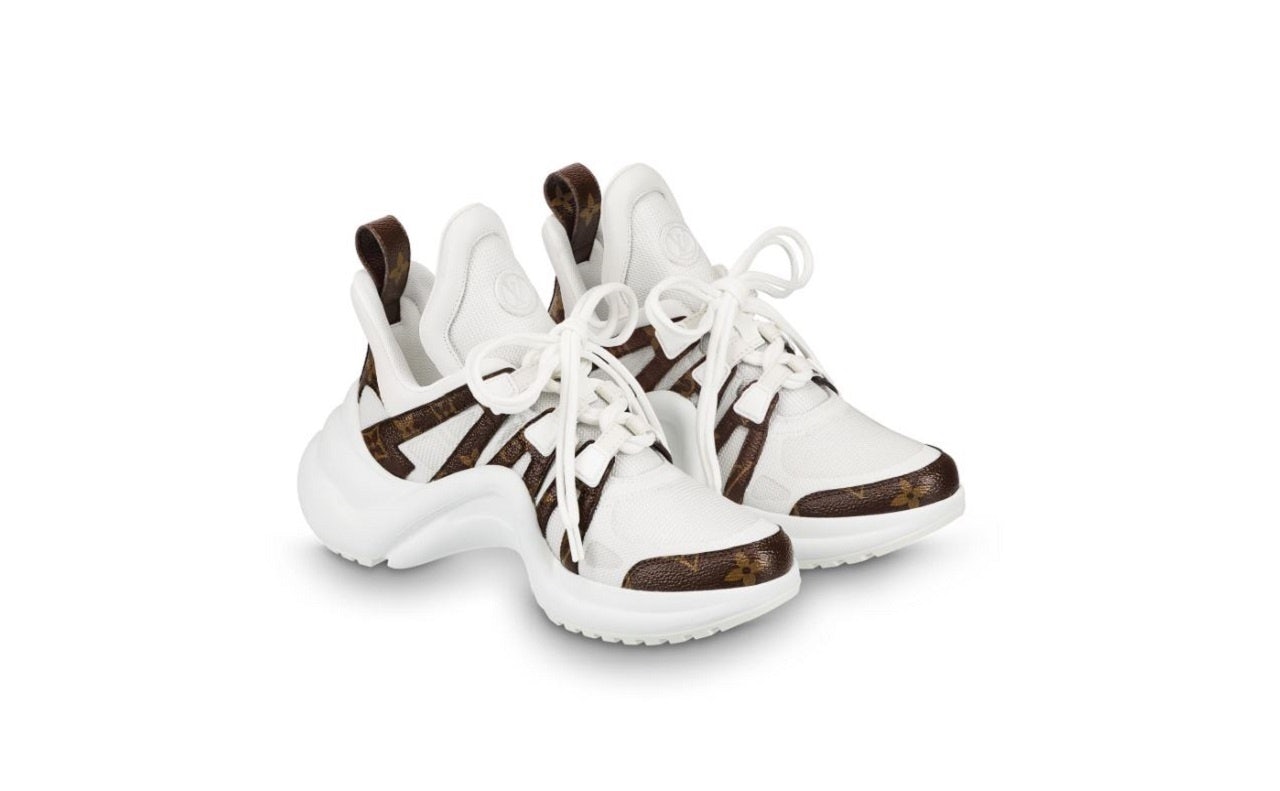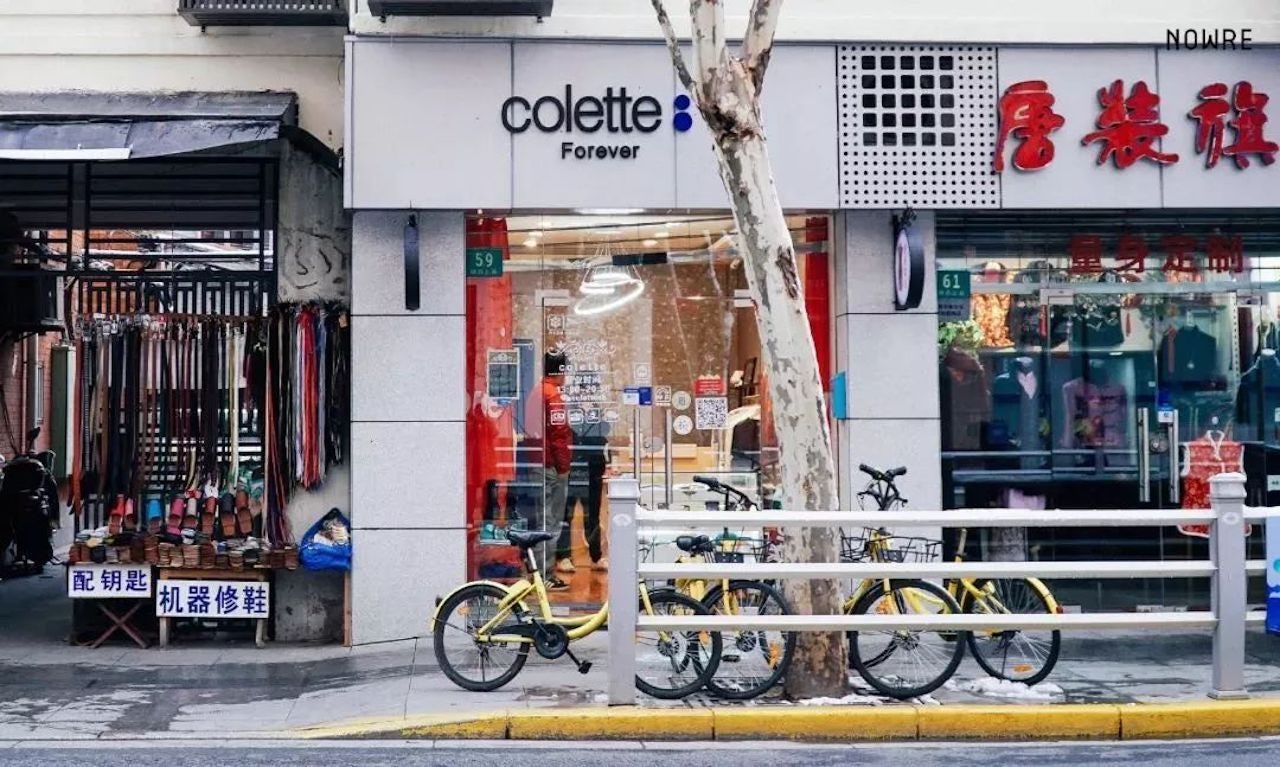Concerns surrounding intellectual property (IP) theft by Chinese companies is certainly not a priority exclusive to the Trump Administration. In early May, the French luxury powerhouse Louis Vuitton officially brought action against Belle International Holdings, a Hong Kong-listed Chinese footwear company, accusing it of infringing upon the design patent of its widely popular “dad” sneaker from its Archlight collection.
“This lawsuit deserves close attention because besides the fact that the dispute is between two established fashion groups, the dispute also focuses on a fashion article — the ‘dad’ sneaker — which has been trendy in the global fashion market,” says Sindy Ding-Voorhees, Associate attorney at Kilpatrick Townsend & Stockton and Co-director of the Fashion, Art, Media, Entertainment, Sports (FAMES) Law Institute in China.
The Archlight sneaker was first unveiled at Louis Vuitton’s Spring/Summer 2018 collection and officially hit the global retail market in February 2018. Upon its drop, the shoes immediately appealed to a list of high-profile fans, like the actor Jaden Smith, for its futuristic look and comfortable design. Retailing for approximately 1,090, the Archlight collection is perceived as a strong competitor to take the crown from Balenciaga’s Triple S sneaker (around 950), which arguably initiated the current “dad” sneaker fever in the fashion world.
According to legal documents obtained by South China Morning Post, Louis Vuitton filed the lawsuit to Hong Kong’s High Court against Belle International (China) and Best Able Footwear, which are two subsidiaries of Belle International Holdings, on May 3. The French brand noticed that Belle started manufacturing and selling a highly similar product to its "dad" sneaker since July 24, 2018. Therefore, Louis Vuitton requested the court stop Belle from further infringements and to order the company to remove and destroy all related items. The luxury brand further asked for an unspecified amount of compensation.
The copycat phenomenon is rampant in the global luxury fashion industry. It is a recurring issue that strikes many powerhouse brands that pride themselves on originality, craftsmanship, and top-notch design. The majority of luxury fashion designers tend to take to legal routes to protect their intellectual property rights, while some of them, such as Gucci’s Creative Designer Alessandro Michele, embraced the issue with a playful attitude, seeing copycat as a way of re-creating and even being creative. But the reality of the issue is more complex. Big-name brands often see themselves as the victim, but sometimes, it can be the other way around. For example, a Chinese fashion student studying at the Parsons School of Design accused the high fashion brand Viktor & Rolf of copying his designs for its 2017 Autumn/Winter Haute Couture collection in Paris.
On the legal side, copyright and design protection in fashion is an area where different countries and jurisdictions have varying legal standards, adding a layer of uncertainty to the future of Louis Vuitton case. “[The chance to win] will depend on any design rights or copyrights Louis Vuitton has registered [before the launch of Belle’s disputed sneakers], or unregistered, especially in China, where Belle’s main customers and market are located,” says Ding-Voorhees. “Another factor to Louis Vuitton’s success in this dispute would be its fame in China over its particular design of the Archlight shoes.”
The fact that Belle International Holdings is an established fashion player in the Chinese market also makes the case trickier. Founded by Tang Yiu in 1991, Belle International Holdings is China’s leading women's footwear retailer, accounting for over 20 percent of the Chinese shoe market share. The company went public on the Hong Kong Stock Exchange in 2015. “Even if Louis Vuitton is able to claim protection of its design rights or copyrights in the Archlight shoes, either through direct registration or Berne Convention, the court would also listen to the other side of the story from Belle, for example, their rights, if any, their creation process, and the timeline of their launch, etc,” adds Ding-Voorhees.
The journey to protect copyright and design patent rights in China has mostly been tough, if not impossible, for international luxury brands. A previous success was the Italian skiwear brand Moncler, which, in 2013, won a case against a Beijing-based clothing company that produced similar winter parkas and copied its trademark. Moncler was compensated 430,000 for the losses.
Therefore, for brands doing business in China, being preventive rather than responsive to design infringements is more effective in avoiding similar problems coming back to them in the future. Ding-Voorhees suggests that before making a certain design of a fashion item public — particularly designs with distinctive features that will be available in global markets — brand owners such as Louis Vuitton should consider filing both broadly and swiftly for all available forms of IP protection.


